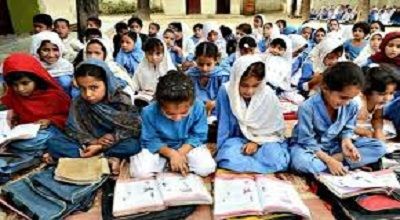Human Development and Learning
Human development and learning are interconnected processes that encompass the physical, cognitive, emotional, and social growth of individuals throughout their lifespan. Understanding these processes is crucial for educators, psychologists, parents, and other professionals working with individuals at various stages of life.
Human development and learning is a multidisciplinary field that encompasses the study of how people grow and change throughout their lives. It draws on a variety of disciplines, including psychology, education, sociology, and anthropology, to understand the factors that influence human development and learning.
Human development refers to the physical, cognitive, and emotional changes that occur throughout the lifespan. Learning, on the other hand, refers to the acquisition of knowledge, skills, and attitudes. Both development and learning are essential for human flourishing, and they are closely intertwined.
Here’s an overview of key concepts related to human development and learning:
Human Development
Physical Development:
- Involves changes in the body and its systems.
- Milestones include motor skills, puberty, and aging.
Cognitive Development:
- Refers to changes in mental processes such as memory, problem-solving, and reasoning.
- Jean Piaget’s stages (sensorimotor, preoperational, concrete operational, formal operational) are widely known.
Emotional Development:
- Involves the understanding and regulation of emotions.
- Erik Erikson’s stages highlight emotional challenges at different life stages.
Social Development:
- Focuses on how individuals interact with others.
- Attachment theory (John Bowlby) explores emotional bonds between infants and caregivers.
Moral Development:
- Examines the development of moral reasoning and ethical behavior.
- Lawrence Kohlberg’s stages (pre-conventional, conventional, and post-conventional) are influential.
Learning Theories
Behaviorism:
- Emphasizes observable behaviors and stimulus-response associations.
- B.F. Skinner’s operant conditioning is a key component.
Cognitivism:
- Focuses on mental processes such as memory, problem-solving, and decision-making.
- Jean Piaget’s cognitive development theory aligns with cognitivist principles.
Constructivism:
- Stresses the active role of learners in constructing their understanding.
- Lev Vygotsky’s socio-cultural theory is a significant constructivist approach.
Humanism:
- Highlights the importance of individual experience, emotions, and self-directed learning.
- Maslow’s hierarchy of needs is often associated with humanistic approaches.
Social Learning Theory:
- Combines elements of behaviorism and cognitivism, emphasizing observational learning and modeling.
- Albert Bandura’s work on observational learning is central to this theory.
Factors Influencing Development and Learning
Nature vs. Nurture:
- Debate the relative contributions of genetics (nature) and environment (nurture) to development.
Critical Periods and Sensitive Periods:
- Certain periods in development occur when specific experiences have a profound impact.
Socioeconomic Factors:
- Economic status, cultural background, and social environment influence development and learning.
Individual Differences:
- There are variations in personality, learning styles, and abilities among individuals.
Applications
Education:
- Curriculum design, teaching methods, and assessment strategies are influenced by theories of learning and development.
Psychology:
- Understanding human behavior, mental health, and interventions for various psychological issues.
Parenting:
- Applying knowledge of child development to promote healthy parenting practices.
Healthcare:
- Addressing the physical and mental health needs at different life stages.
Workplace Training:
- Designing effective training programs based on adult learning principles.
Some Other Theories human development and learning
There are many different theories about human development and learning. Some of the most influential theories include:
- Piaget’s theory of cognitive development
- Vygotsky’s sociocultural theory of learning
- Erikson’s theory of psychosocial development
- Bandura’s social cognitive theory
These theories provide different perspectives on how people develop and learn. They can be used to understand the challenges and opportunities that people face at different stages of life and to design interventions that can promote healthy development and learning.
Summary
In summary, human development and learning are complex, dynamic processes that are influenced by a myriad of factors. A holistic understanding of these concepts is essential for fostering positive growth and facilitating effective educational and psychological interventions. Human development and learning is a complex and fascinating field of study. It is a field that has the potential to make a significant difference in the lives of people around the world.
